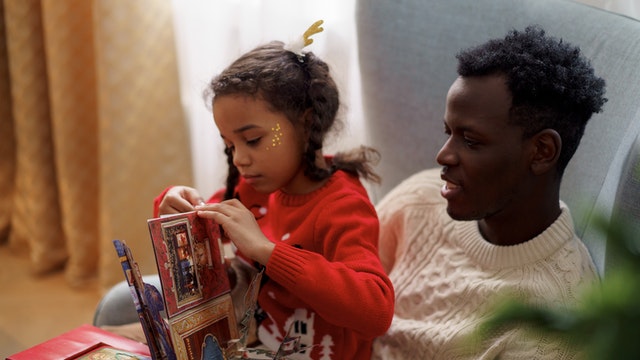
The term folktales are the product of social evolution in any culture. It has significant importance in folk literature. Every culture goes through a certain process to establish its norms and values. During this evolution process, diverse cultural norms evolve. Folktale is one of those byproducts that evolve during cultural evolution.
A folktale is a story or narrative by mouth which travels from one generation to the next generation. The creation of the folktale depends upon the cultural density of any society.
Its nature may vary from one society to another. It is a cultural heritage that people own from their ancestors and transfer it to the next generation. Some people argue that folktales are the reflection of the cultural wisdom of any certain society.
No doubt, folktales are cultural behavior in any specific culture and it contains a lot of wisdom and knowledge in themselves. This is also the best source of learning through wisdom and cultural experiences.
Folktales and their importance
Children’s stories are an essential part of children’s lives, and they should be encouraged to become more involved in their reading and writing. Folktales are always for the children, and tales are an important part of culture and knowledge. Because they influence children in a variety of ways, such as their behavior and how they perceive the world.
Folktales are tales from the past, and they are often very true to life. People in the past still lives in the land and region they once lived in, and they still bear these traits. But the world has changed, and so must the tales. Therefore, these tales can serve as a message to a new generation. Young people are inspired by these tales, and they realize how small actions can lead to large effects.
Why people share folktales
They convey the importance of patience. The old lady is in a hurry to leave her home and the boy is too slow in fulfilling her wishes.
Folktales convey the importance of forgiveness. The lady forgives the boy for his fault and the boy is able to find a peaceful solution.
They convey the value of friendship and togetherness. The boy grows closer to the old lady as they spend time together.
These folktales convey the lesson of selflessness and charity. The boy cannot stand by and watch the elderly lady die. He devotes himself to helping her and her daughter.
They convey the lesson of making people happy and preserving tradition. The boy grows up to live a life that matches the high expectations of his elders.
What to learn from the story of the Boy Who Cried Wolf
Folktales, being a subgenre of fairy tales, can be grouped into two major categories: heroic folktales and silly folktales. Heroic folktales describe people in extreme situations and a person having to deal with them with no backing from anyone. Heroic folktales, as their name implies, celebrate the values that they want to teach. These values can be wisdom, bravery, and compassion.
Silly folktales, on the other hand, are more fun than heroic folktales. These, however, usually promote values that parents or authority figures wish to instill in young people. These values can be safety, moderation, kindness, honesty, and that these are qualities that make people admirable.
The major difference between a folktale and a fairytale
Here are some basic differences between folktale and a fairytale
– Folktales are usually based on one source (origin story, the original history of a community, etc.), whereas fairy-tales usually feature many different stories, from the point of view of different people.
– These folktales often contain moral lessons or statements of values that are to be understood by each generation.
– Fairy Tales contain an element of inspiration.
– They are to amuse the children and to entertain.
Storytellers are often called upon to tell the tales of the land, in the process, they learn about the origin of the place, its culture, traditions, customs, and more.
So what is the origin of the term “folklore”? The word “folklore” comes from the German word “folkschiene” which means a tradition of people.
Folktales and their cultural meaning
Folktales and the value it has for culture include cultural values and virtues. Particularly the values of the collective for example the family, the friends, the neighbors, and the culture of a specific culture
Common examples are King Midas, Shrek, Pinocchio, Hansel and Gretel, and Snow White. Each of these is an example of common wisdom, which speaks to us of things that we need to work on, and do not mean to be said otherwise.
It is a misconception that every moral tale is teaching us a lesson, when in fact they are often part of a larger moral narrative. Folktales are narrative stories of ideal and improbable situations where members of a society can learn from their experiences so that the tales themselves provide lessons to be passed on from one generation to another.
How do folktales help people?
Since folktales pass on beliefs and values. They provide people with a way to connect with their culture and to understand themselves. Folktales give a sense of a group of people’s history and experience. In fact, folktales help people to move forward through their own experiences and to relate their life to others. People learn many lessons from folktales, where they describe what is right and what is wrong.
What are the benefits of teaching folktales?
Teaching folktales can enhance one’s understanding of different cultures. Folktales, in fact, belong to several cultures and languages which include many countries. Folktales enable people to improve their social skills, such as communication between people.
Conclusion
So, we believe that language plays a vital role in sustaining our cultural identity as a nation. It is the responsibility of all of us to preserve our culture and heritage. We encourage everyone to use their imagination and folklore to develop a cultural identity. We should always feel proud to be a member of our community or a citizen of the state.
In fact, folktales are the identity of a specific culture and community. In a society, people react differently, they perceive the cultural knowledge according to their own cultural context. So, the folktales are the amalgamation of all these social and cultural traits.


